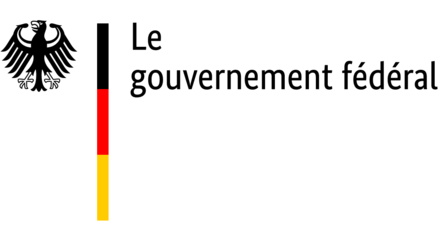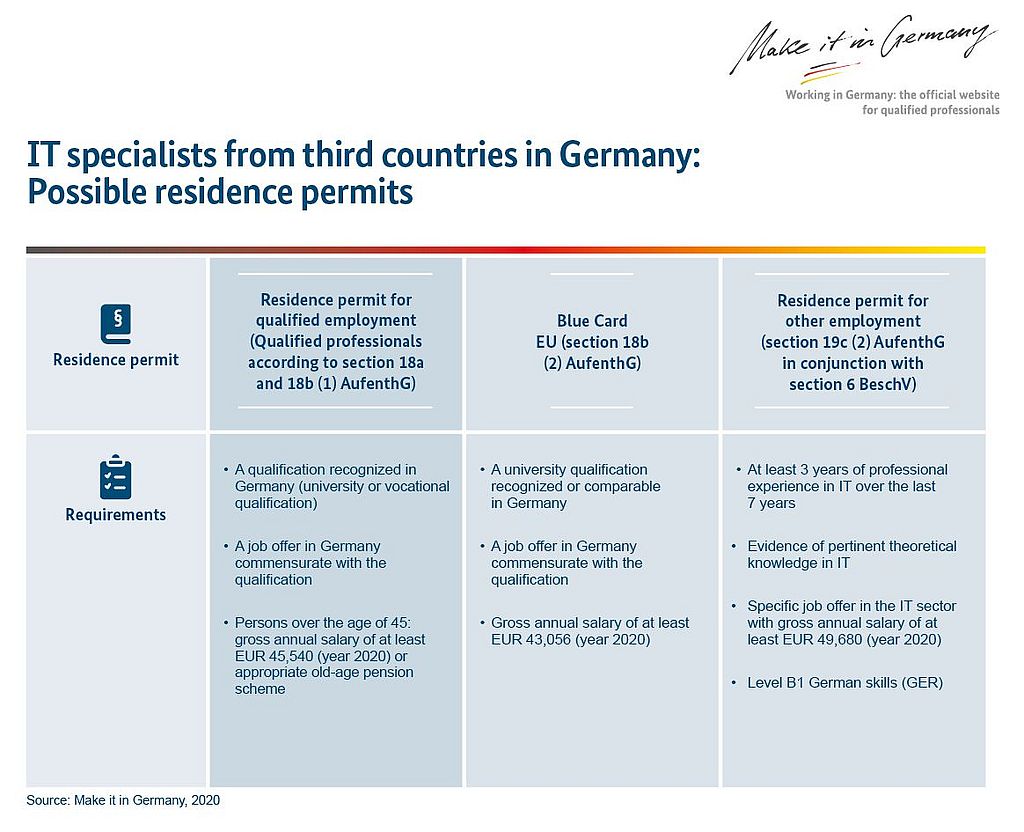Visa as an IT specialist with significant work experience
The German Skilled Immigration Act has made it possible for international IT specialists to find their way into the German labor market. It enables applicants from third countries to obtain the approval of the Federal Employment Agency (BA) for employment in the IT sector without the need for formal recognition of their qualifications (Section 6 German Employment Regulation (BeschV)). However, the following requirements must be met:
- The applicant is able to demonstrate at least three years of professional experience in the IT sector in the last seven years. The existing professional experience must correspond to to the occupation that the qualified professional intends to practice.
- There should also be evidence of relevant theoretical knowledge based on training courses and examinations.
- The qualified professional has a concrete job offer. This post must come with an annual salary amounting to at least 60 % of the annual contribution assessment ceiling in the statutory pension and unemployment insurance system. A salary threshold of EUR 49,680 applies in 2020.
- The applicant must be proficient in German at Level B1 of the Common European Framework of Reference for Languages (CEFR). The requirement to provide evidence of knowledge of German may be waived in individual cases where German is not the working language.
- The Federal Employment Agency (BA) has approved the employment of the foreign skilled worker.
If these requirements are met, a residence permit for employment purposes may be granted pursuant to section 19c (2) of the German Residence Act.
Tip: If you are an employer who would like to bring her or his qualified professional to Germany quickly, you may apply for the fast-track procedure for skilled workers in accordance with section 81a of the German Residence Act (AufenthG). This option allows you to fast-track the administrative procedure leading up to the issue of the relevant visa for your qualified professional. Information on advisory services, contact persons and essential documentation can be found on Make it in Germany.
Further information on Make it in Germany
Sources and notes:
(1) Bitkom, "There are 2,600 IT specialists for every 100,000 employees in Germany", press release 8/21/2020: https://www.bitkom.org/Presse/Presseinformation/Auf-100000-Beschaeftigte-kommen-2600-IT-Spezialisten
(2) Federal Employment Agency, workers by nationality (quarterly figures), March 2020: https://statistik.arbeitsagentur.de/SiteGlobals/Forms/Suche/Einzelheftsuche_Formular.html?nn=25122&topic_f=beschaeftigung-eu-heft-eu-heft
(3) The priority check examines whether the concrete job offer can be filled by a person who is a registered jobseeker in Germany. The priority test is considered to have been passed if the employer can give good reason as to why there are no suitable candidates among the unemployed entitled to preferential access.
(4) Different salary thresholds apply in Germany for the EU Blue Card: As a rule, a gross annual salary must amount to at least two thirds of the annual contribution assessment ceiling in the statutory pension insurance system. A lower annual salary of at least 52 % of the annual contribution assessment ceiling in the statutory pension insurance system applies to occupations in the fields of mathematics, IT, natural sciences, engineering and human medicine. Accordingly, therefore, the minimum gross salary for jobs in the fields of mathematics, IT, natural sciences, engineering and human medicine is EUR 43,056 in 2020 and EUR 55,200 for all other occupations.


